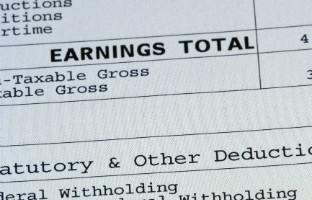Wages to spend

For the first time since 2007, Washington is talking seriously about increasing the federal minimum wage. President Obama favors $10.10 an hour, and the Congressional Budget Office recently crunched the numbers. The results gave ammunition to the ayes and nays alike: such an increase would likely raise wages for 16.5 million Americans, but at the expense of 500,000 jobs.
Half a million lost jobs is no small thing. But change comes with costs, and here the benefits are far greater. Along with the 16.5 million workers that a $10.10 minimum wage would help directly, the CBO estimates that another 8 million would reap a spillover effect on wages. Overall, the change would improve the family incomes of more than 70 percent of low-wage workers and nudge 900,000 Americans above the poverty line. There’s little question that increasing the minimum wage would benefit low-income Americans.
Read our latest issue or browse back issues.
Would this come at the direct expense of the well off? Yes and no. A minimum wage hike could affect consumer prices and higher-wage earnings; as a direct intervention against wage inequality, it will be felt by people on either side of the inequality coin. But it won’t hurt much. The CBO found that families earning $180,000 would see their incomes fall by less than half a percent. And an independent study found that if Walmart paid all employees at least $12 an hour and passed the entire cost on to consumers, prices would go up only 1 percent.
This is likely one reason Walmart has suggested it might support a minimum wage increase, as it did in 2007. Another is that paying well is good for business. GAP recently voluntarily upped its own minimum wage, joining Costco and others. GAP’s CEO Glenn Murphy characterized this as an investment expected “to deliver a return many times over”—because these days, the main thing brick-and-mortar stores offer is hands-on service. Such service requires skilled, motivated employees who stick around. Higher pay promotes this.
A Walmart spokesperson added another reason higher wages are good for business: low-income Americans compose not just the retailer’s workforce but also its customers. In the past, Walmart has often been contrasted with Henry Ford, who paid autoworkers enough to buy the cars they made. Now Walmart is inviting a comparison: the company employs 1 percent of its 140 million customers—and if they have more money, they shop more.
But unlike Ford then and GAP now, Walmart isn’t willing to increase wages on its own. It wants the government to do it so that competing retailers have to pay more, too. While this perhaps reveals the limits of Walmart’s imagination, it also highlights something crucial: higher wages can be good for everyone—retailers of different sizes, workers and managers alike—provided the playing field is level. The minimum wage is not a zero-sum game.
It’s not the whole answer, either. Lifting 900,000 Americans out of poverty leaves 50 times that many behind. The fight for a fairer, more humane society has many fronts. But raising the minimum wage is a good step and long overdue.





